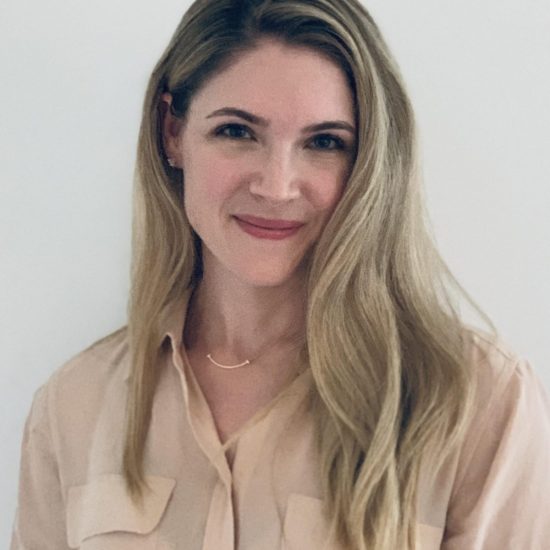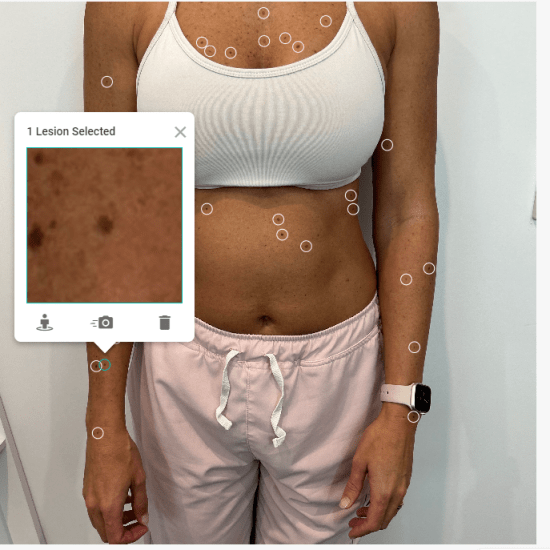Taking care of your skin isn’t just about looking good
Skin Health and Skin Checks
The skin is the body’s largest organ and your first line of defence against sun exposure, environmental pollutants, and temperature extremes.
At Her Medical, our doctors provide thorough skin checks and medical management of skin conditions, including monitoring changes in existing moles and identifying new lesions. Early detection and diagnosis are key to successful treatment and long-term skin health.
Dr Megan Kelly provide in-clinic skin checks and can discuss any concerns you may have about new or existing moles.
This information is of a general nature and is not a substitute for medical advice. Regular skin checks are recommended in accordance with current clinical guidelines.
Skin Checks
Skin Checks and Early Detection
Understanding your own skin and recognising what’s normal for you is the first step in early detection. If you notice any new spots or changes in the colour, size or shape of existing moles, it’s important to book an appointment with your General Practitioner (GP). Your GP can assess the change in the context of your overall health and determine whether a structured surveillance or management plan is required.
Early identification makes a significant difference — most skin cancers are highly treatable when detected in their early stages.
For people at increased risk of skin cancer, regular professional skin examinations are recommended in addition to self-checks at home. In some cases, your GP may also suggest total body photography to assist with monitoring.
You may be considered higher risk if you:
• are male and over 50 years of age
• have had previous skin cancer
• have many moles, particularly large or atypical ones
• have experienced substantial sun exposure or sun damage
• have a family history of skin cancer
• take immunosuppressive medication
• have a genetic condition that increases susceptibility to melanoma.
If any of these apply to you, speak with your GP about the most appropriate screening interval and follow-up plan.
Her Medical provides regulated health services in accordance with AHPRA standards. This information is general in nature and not intended to replace personal medical advice.
Skin Procedures (Excision, Biopsy, Cryotherapy, Total Body Photography) — Risk Information
Skin procedures are generally safe when performed by experienced practitioners, but may result in mild discomfort, bleeding, bruising, infection, scarring, or pigment change at the treatment site.
Patients are advised on appropriate wound care and follow-up to ensure optimal healing and early detection of complications.

Dr Paula Hade
Dr Paula Hade areas of interest include all areas of women’s health, antenatal care, children’s health, preventive health and skin health.

Dr Megan Kelly
Dr Megan Kelly is an experienced FRACGP General Practitioner with a special interest in skin cancer medicine.
Do you know your skin type?
Skin Sense
Skin Sense
Skin Sense
Australia has the highest rate of skin cancer in the world — and Queensland leads those statistics, with one of the highest recorded rates of melanoma globally.
Understanding your skin and monitoring it regularly is vital. Any new moles or changes in the size, shape or colour of existing spots should be checked by your GP as soon as possible. Early detection gives the best chance for successful treatment and ongoing skin health.
Some people may be at higher risk of developing skin cancer, particularly those who have:
• fair skin, fair or red hair, and light-coloured eyes
• a large number of moles
• a family history of skin cancer
• a history of sunburn or prolonged outdoor work
• used solariums, sunlamps or sunbeds.
Regular self-checks, sun protection and periodic professional skin examinations are essential parts of prevention and early detection.
Her Medical provides regulated health services in accordance with AHPRA standards. This information is general in nature and not intended to replace individual medical advice.

Dr Megan Kelly

Dr Paula Hade
Total Body Photography

Total Body Photography
Total Body Photography (TBP)
Total Body Photography (TBP) is a medical imaging technique used to document the skin’s surface in detail. It captures a comprehensive series of high-resolution photographs of the body, providing a visual record that can assist doctors in monitoring changes to moles or other skin features over time.
TBP can form part of a thorough skin examination for patients who have a higher risk of skin cancer or multiple moles. It supports accurate monitoring and long-term dermatological care by helping identify changes that may warrant further clinical assessment.
Digital TBP also enables secure record-keeping and easier comparison of images between appointments, helping to ensure continuity of care.
At Her Medical, TBP is performed by qualified General Practitioners as part of a comprehensive skin assessment. All procedures are conducted in accordance with AHPRA standards. This information is general in nature and not intended to replace personal medical advice or to promote specific devices or diagnostic techniques.
